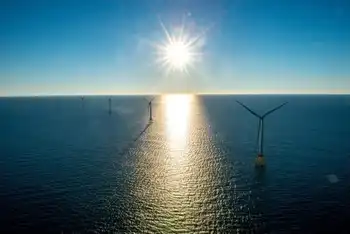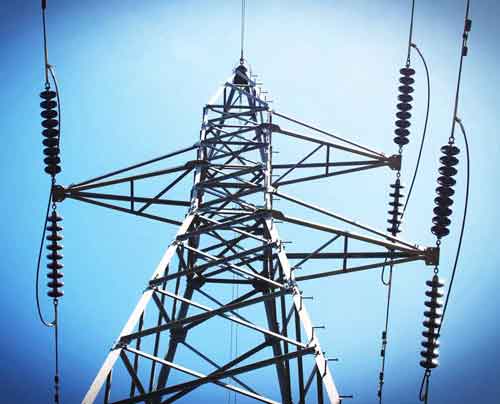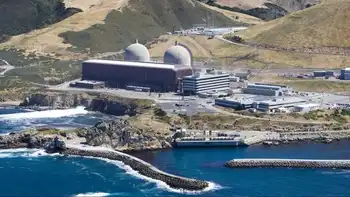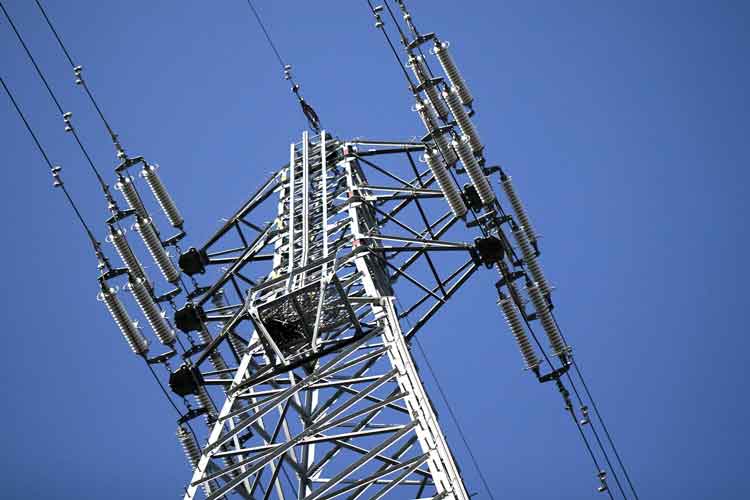Newfoundland and Labrador Energy Efficiency faces low rankings yet signs of progress: heat pumps, EV charging networks, stricter building codes, electrification to tap Muskrat Falls power and cut greenhouse gas emissions and energy poverty.
Key Points
Policies and programs improving N.L.'s energy use via electrification, EVs, heat pumps, and stronger building codes.
✅ Ranks last provincially but showing policy momentum
✅ Heat pump grants and EV charging network underway
✅ Stronger building codes and electrification can cut emissions
Ah, another day, another depressing study that places Newfoundland and Labrador as lagging behind the rest of Canada.
We've been in this place before — least-fit kids, lowest birthrate — and now we can add a new dubious distinction to the pile: a ranking of the provinces according to energy efficiency placed Newfoundland and Labrador last.
Efficiency Canada released its first-ever provincial scorecard Nov. 20, comparing energy efficiency policies among the provinces. With energy efficiency a key part of reducing greenhouse gas emissions, Newfoundland and Labrador sat in 10th place, noted for its lack of policies on everything from promoting EV uptake in Atlantic Canada to improving efficient construction codes.
But before you click away to a happier story (about, say, a feline Instagram superstar) one of the scorecard's authors says there's a silver lining to the statistics.
"It's not that Newfoundland and Labrador is doing anything badly; it's just that it could do more," said Brendan Haley, the policy director at Efficiency Canada, a new think tank based at Carleton University.
"There's just a general lack of attention to implementing efficiency policies relative to other jurisdictions, including New Brunswick's EV rebate programs on transportation."
Looking at the scorecard and comparing N.L. with British Columbia, which snagged the No. 1 spot, isn't a great look. B.C. scored 56 points out of a possible 100, while N.L. got just 15.
Haley pointed out that B.C.'s provincial government is charting progress toward 2032, when all new builds will have to be net-zero energy ready; that is, buildings that can produce as much clean energy as they consume.
While it might not be feasible to emulate that to a T here, Haley said the province could be mandating better energy efficiency standards for new, large building projects, and, at the same time, promote electrification of such projects as a way to soak up some of that surplus Muskrat Falls electricity.
Staring down Muskrat's 'extraordinary' pressure on N.L. electricity rates
It's impossible to talk about energy efficiency in N.L. without considering that dam dilemma. As Muskrat Falls comes online, likely at the end of 2020, customer power rates are set to rise in order to pay for it, and the province is still trying to figure out the headache that is rate mitigation.
"There is a strategic choice to be made in Newfoundland and Labrador," Haley told CBC Radio's On The Go.
While having more customers using Muskrat Falls power can help with rate mitigation, including through initiatives like N.L.'s EV push to grow demand, Haley noted simply using its excess electricity for the sake of it isn't a great goal.
"That should not be an excuse, I think, to almost have a policy of wasting energy on purpose, or saying that we don't need programs that help save electricity anymore," he said.
Energy poverty
Lots of N.L. homeowners are currently feeling a chill from the spectre of rising electricity rates.
Of course, that draft could be coming from a poorly insulated and heated house, as Efficiency Canada noted 38 per cent of all households in N.L. live in what it calls "energy poverty," where they spend more than six per cent of their after-tax income on energy — that's the second highest such rate in the country.
That poverty speaks for a need for N.L.to boost efficiency incentives for vulnerable populations, although Haley noted the government is making progress. The province recently expanded its home energy savings program, doubling in the last budget year to $2 million, which gives grants to low income households for upgrades like insulation.
Can you guess what products are selling like hotcakes as Muskrat Falls looms? Heat pumps
And since Efficiency Canada compiled its scorecard, the province has introduced a $1-million heat pump program, in which 1,000 homeowners could receive $1,000 toward the purchase of a heat pump.
That program began accepting applications Oct. 15, and one month in, has had 682 people apply, according to the Department of Municipal Affairs and Environment, along with thousands of inquiries.
Heat pump popularity
Even without that program, heat pump sales have skyrocketed in the province since 2017. That popularity doesn't come as much of a surprise to Darren Brake, the president of KSAB Construction in Corner Brook.
With more than two decades in the home building business, he's been seeing consumer demand for home energy efficiency rise to the point where a year ago, his company transitioned into only building third-party certified energy efficient homes.
"Everybody's really concerned about the escalating power costs and energy costs, I assume because of Muskrat Falls," he said.
"It's evolving now, as we speak. Everybody is all about that monthly payment."
Brake uses spray foam installation in every house he builds, to seal up any potential leaks. Without sealing the building envelope, he says, a heat pump is far less efficient. (Lindsay Bird/CBC)
And in the weakest housing market in the province in half a century, Brake has been steadily moving his, building and selling seven in the last year.
Brake's houses include heat pumps, but he said the real savings come from their heavily insulated walls, roof and floors. Homeowners looking to install a heat pump in their leaky old house, he said, won't see lower power bills in quite the same way.
"They are energy efficient, but it's more about the building envelope to make a home efficient and easy to heat. You can put a heat pump in an older home that leaks a lot of air, and you won't get the same results," he said.
Charging network coming
The other big piece to the efficiency puzzle — in the scorecard's eyes — is electric vehicles. Those could, again, use some of that Muskrat Falls energy, as well as curtail gas guzzling, but Efficiency Canada pointed to a lack of policies and incentives surrounding electrifying transportation, such as Nova Scotia's vehicle-to-grid pilot that illustrates innovation elsewhere.
Unlike Quebec or B.C., the province doesn't offer a rebate for buying EVs, even as N.W.T. encourages EVs through targeted measures, and while electric vehicles got loud applause at the House of Assembly last week, it was absent of any policy or announcement beyond the province unveiling a EV licence plate design to be used in the near future.
Electric-vehicle charging network planned for N.L. in 2020
But since the scorecard was tallied, NL Hydro has unveiled plans for a Level 3 charging network for EVs across the island, dependent on funding, with N.L.'s first fast-charging network seen as just the beginning for local drivers.
NL Hydro says while its request for proposals for an island-wide charging network closed earlier in November, there is no progress update yet, even as N.B.'s fast-charging rollout advances along the Trans-Canada. (Credit: iStock/Getty Images)
That cash appears to still be in limbo, as "we are still progressing through the funding process," said an NL Hydro spokesperson in an email, with no "additional details to release at this time."
Still, the promise of a charging network — plus the swift uptake on the heat pump program — could boost N.L.'s energy efficiency scorecard next time it's tallied, said Haley.
"It is encouraging to see the province moving forward on smart and efficient electrification," he said.
Related News













